'The moment we saw Vietnamese standing alongside other languages on the day Galaxy AI launched, we were overwhelmed,' Tuan Minh - one of the engineers who brought Vietnamese to Galaxy AI - recalled.
Galaxy AI was launched in January 2024 with the Galaxy S24 phone line. Four months earlier, in October 2023, Samsung Group decided to make Vietnamese the 13th language on Galaxy AI and assigned Samsung Research and Development Center Vietnam (SRV) the task of developing Vietnamese for this platform.
“We were extremely proud to be able to make Galaxy AI in our mother tongue. The moment we saw Vietnamese standing alongside other languages on the day Galaxy AI was launched, we were overwhelmed,” Tuan Minh – one of the SRV engineers – recalled.
The 4-month journey of bringing Vietnamese language – which contains the cultural quintessence, values, and pride of the Vietnamese people – to Galaxy AI was not easy. It can even be said that the SRV team had to “overcome thousands of obstacles” to experience the feeling of “bursting” when Vietnamese stood “proudly” alongside other languages.
The SRV team's "overcoming difficulties" journey
Samsung's choice of Vietnamese as one of the first 13 languages to be included in Galaxy AI shows the important role of Vietnam on the Samsung world map. Not only is it a large market, Vietnam is also a giant manufacturing center, with almost all of the company's devices sold in Europe being produced domestically.
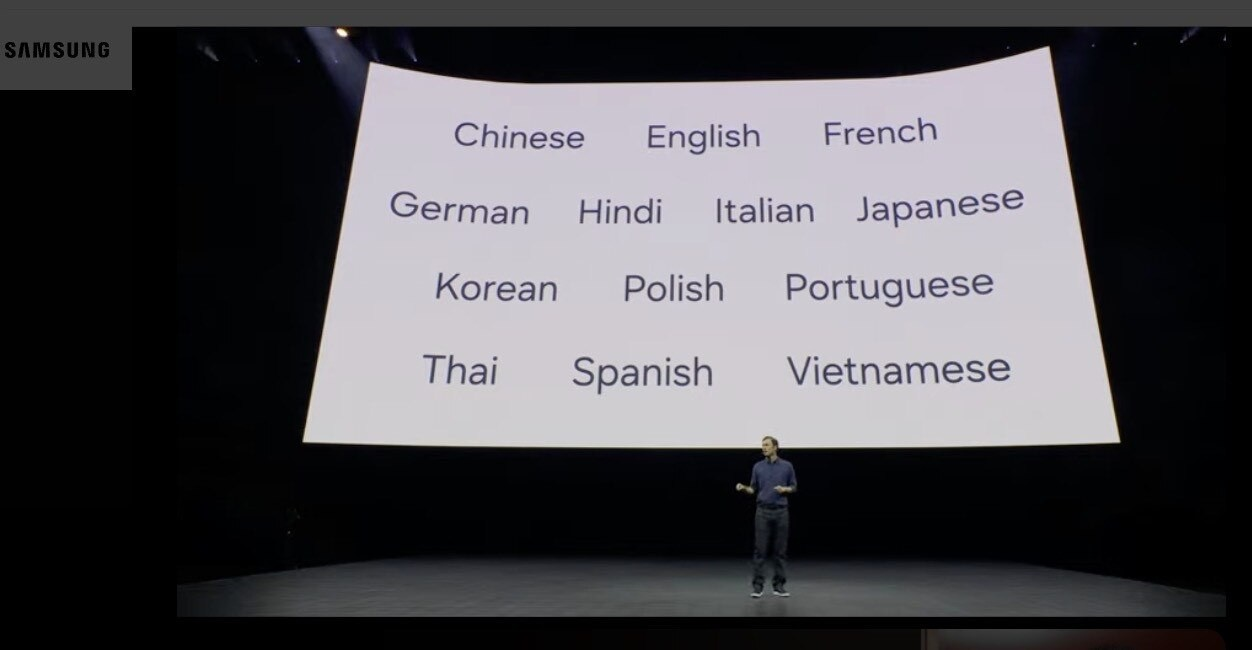
In the process of developing Galaxy AI in their mother tongue, Tuan Minh's team experienced many difficulties, coming from the characteristics of Vietnamese with many dialects; many tones; many reduplicated words, homonyms; words borrowed from other languages; Gen Z language or slang...
“We have to constantly pick up new words and process them to keep up with online trends,” Tuan Minh shared.
This engineer said that the team focused on processing data, in which the input data had to meet three criteria: large enough, diverse and accurate. In the early days, due to lack of data, there were times when hundreds of engineers were mobilized to correct the data and create new data. In addition, they also cooperated with two leading universities in languages, the University of Foreign Languages and the University of Social Sciences and Humanities, to ensure that Galaxy AI understood Vietnamese best.
To improve the accuracy of the AI model, Samsung applies a two-way testing process: automation testing, which can test hundreds of thousands of articles in a short time, and human testing, which ensures the accuracy rate of the output. For example, voice-to-text conversion must be over 95% accurate and text-to-speech must be 90%.
From one-way interaction to "human-like" AI
According to Anh Quan - a colleague of Tuan Minh, with the slogan "Galaxy AI for all", Samsung has made efforts to bring the mobile AI experience to more people. To date, about 93% of Galaxy S24 users in Vietnam are using Galaxy AI. Bringing Vietnamese to Galaxy AI from the very beginning is a great pride for the entire SRV center.
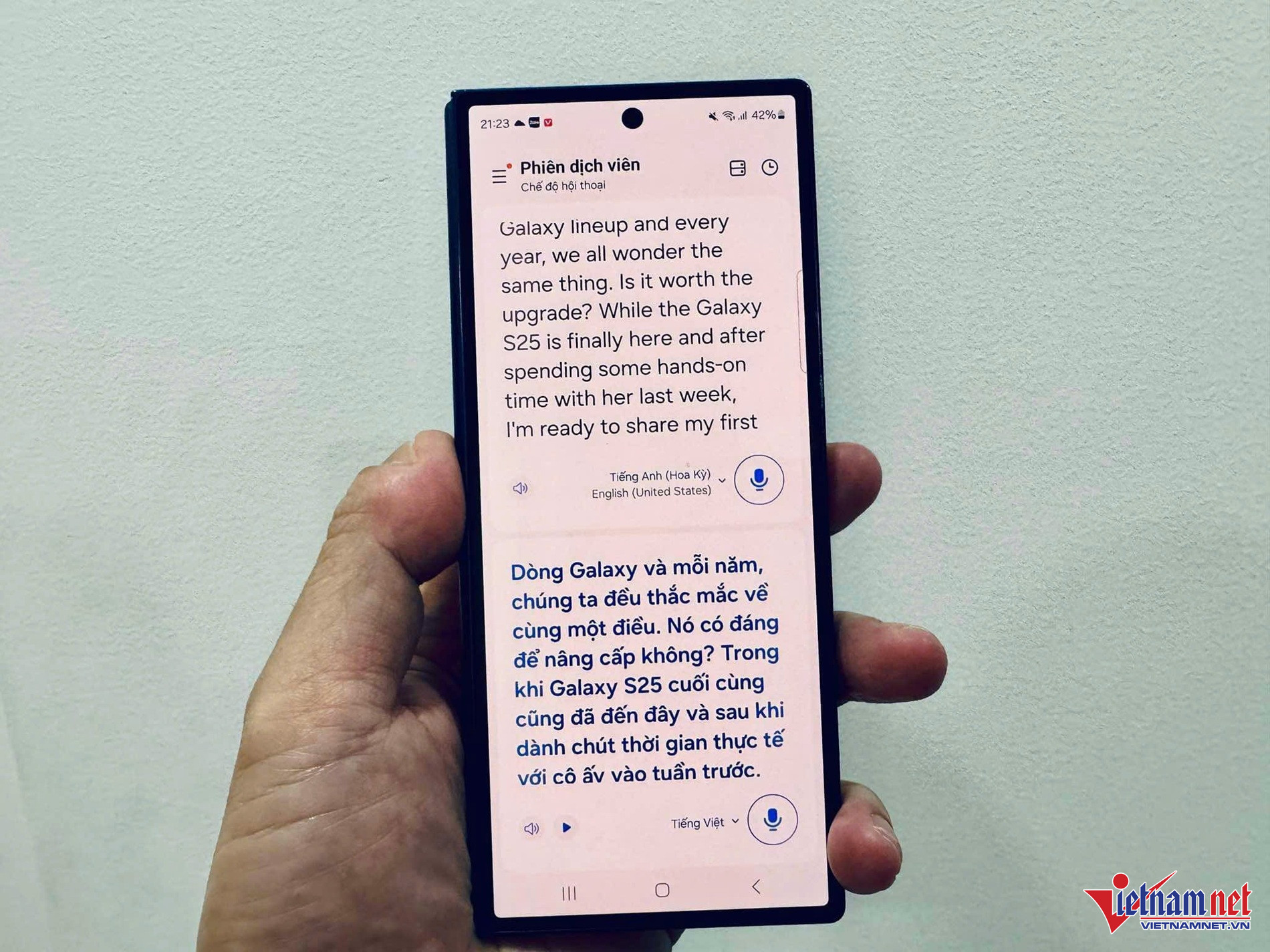
From the Galaxy S24 to the Galaxy S25, Samsung's Galaxy AI has moved from one-way interactions to human-like AI, using voice commands to perform tasks on phone apps, such as finding a photo and sending it to a friend. Human-like AI emphasizes personalization, understanding the context, usage habits and information of users to bring higher personalization.
However, human-like AI must ensure three factors: natural visual interaction, the highest level of personalization, and security. Regarding security, Samsung has established a strict process right from the data collection stage: clean, no legal troubles. AI outputs are also strictly checked to be unbiased, not causing damage to users. Data on Samsung devices is protected by the Samsung Knox platform.
Additionally, through the dashboard, users will know exactly which features are using their data. They also have the right to not provide data to AI features on the cloud. All of these measures are to help users feel more secure when using Galaxy AI.
As an open platform, in the future, Galaxy AI will integrate many different AI solutions, maximally supporting user needs in different situations. Last year, there were about 200 million Samsung devices equipped with Galaxy AI, not only on smartphones but also products in the ecosystem.
There is no perfect AI solution on the market right now. Galaxy AI is no exception. However, like any other AI tool, the more you use it and the more often you use it, the smarter it gets.
Source: https://vietnamnet.vn/vuot-chong-gai-dua-tieng-viet-ngao-nghe-len-galaxy-ai-2366478.html





![[Photo] Prime Minister Pham Minh Chinh chairs the 16th meeting of the National Steering Committee on combating illegal fishing.](https://vphoto.vietnam.vn/thumb/1200x675/vietnam/resource/IMAGE/2025/10/07/1759848378556_dsc-9253-jpg.webp)




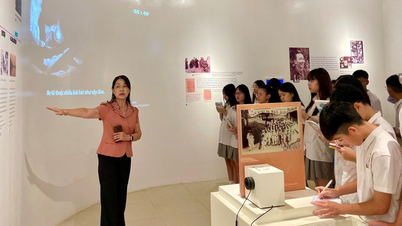















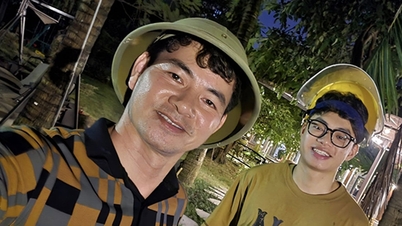


![[Photo] Super harvest moon shines brightly on Mid-Autumn Festival night around the world](https://vphoto.vietnam.vn/thumb/1200x675/vietnam/resource/IMAGE/2025/10/07/1759816565798_1759814567021-jpg.webp)





















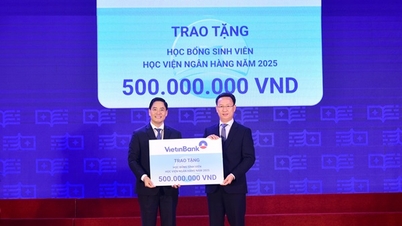













































Comment (0)